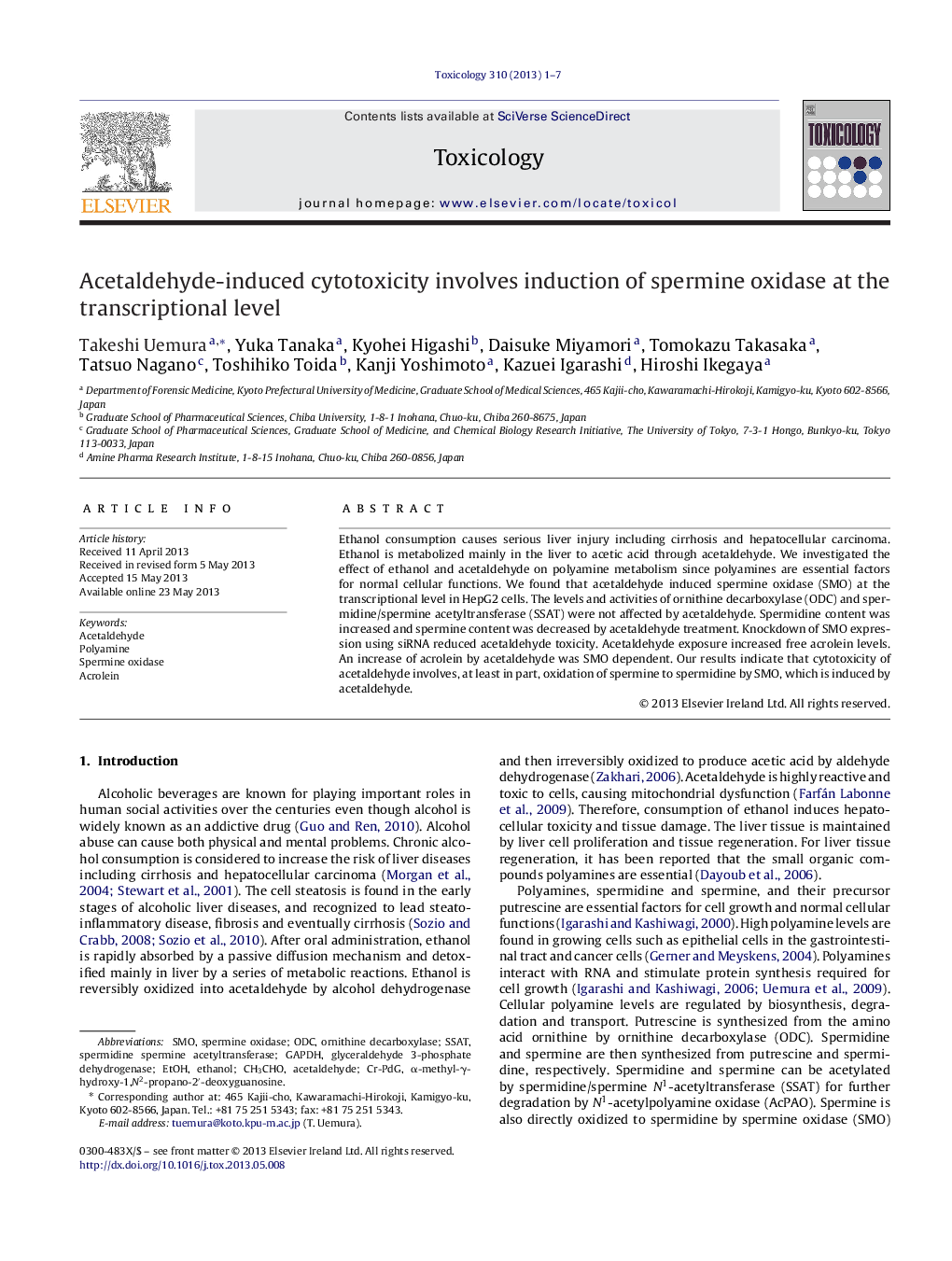| Article ID | Journal | Published Year | Pages | File Type |
|---|---|---|---|---|
| 2595624 | Toxicology | 2013 | 7 Pages |
•Acetaldehyde increased spermidine and decreased spermine content.•Acetaldehyde induced SMO activity.•Knockdown of SMO reduced acetaldehyde toxicity.•Acetaldehyde increased free acrolein level.
Ethanol consumption causes serious liver injury including cirrhosis and hepatocellular carcinoma. Ethanol is metabolized mainly in the liver to acetic acid through acetaldehyde. We investigated the effect of ethanol and acetaldehyde on polyamine metabolism since polyamines are essential factors for normal cellular functions. We found that acetaldehyde induced spermine oxidase (SMO) at the transcriptional level in HepG2 cells. The levels and activities of ornithine decarboxylase (ODC) and spermidine/spermine acetyltransferase (SSAT) were not affected by acetaldehyde. Spermidine content was increased and spermine content was decreased by acetaldehyde treatment. Knockdown of SMO expression using siRNA reduced acetaldehyde toxicity. Acetaldehyde exposure increased free acrolein levels. An increase of acrolein by acetaldehyde was SMO dependent. Our results indicate that cytotoxicity of acetaldehyde involves, at least in part, oxidation of spermine to spermidine by SMO, which is induced by acetaldehyde.
